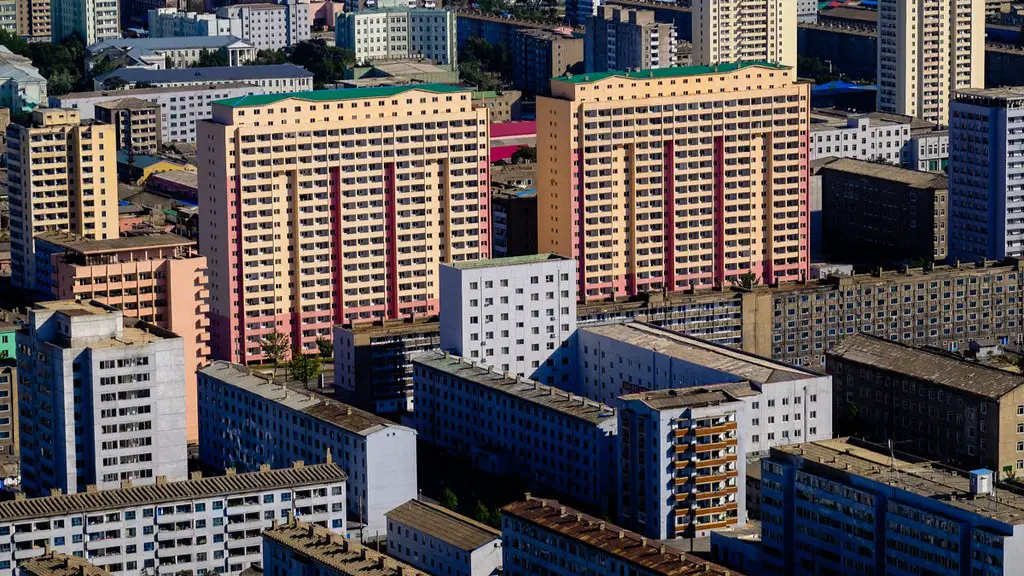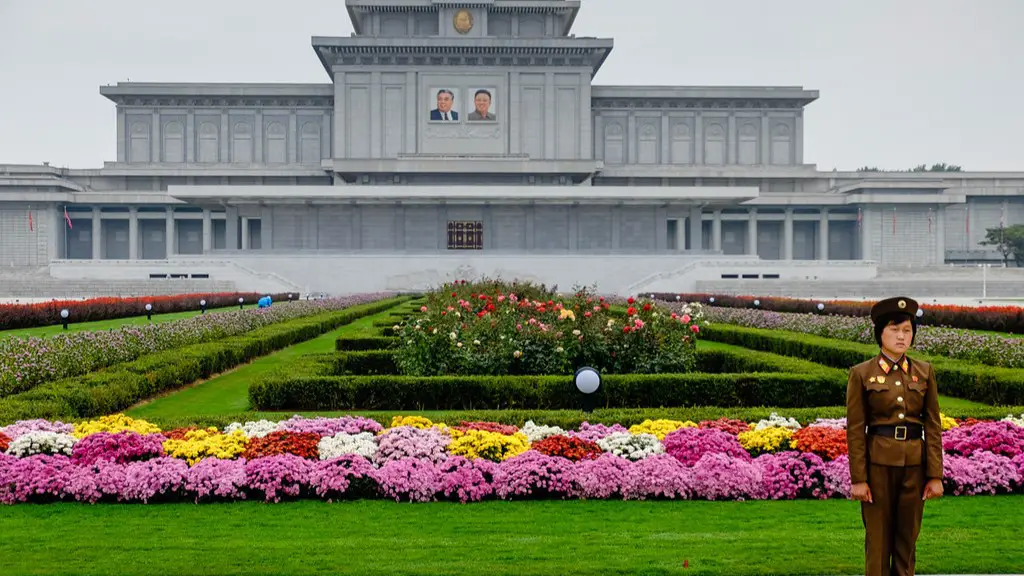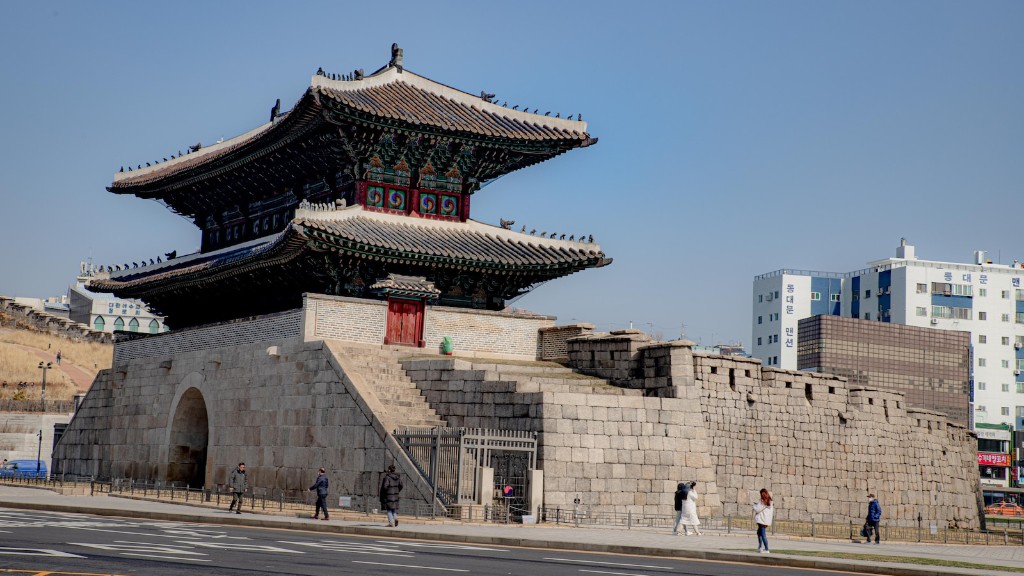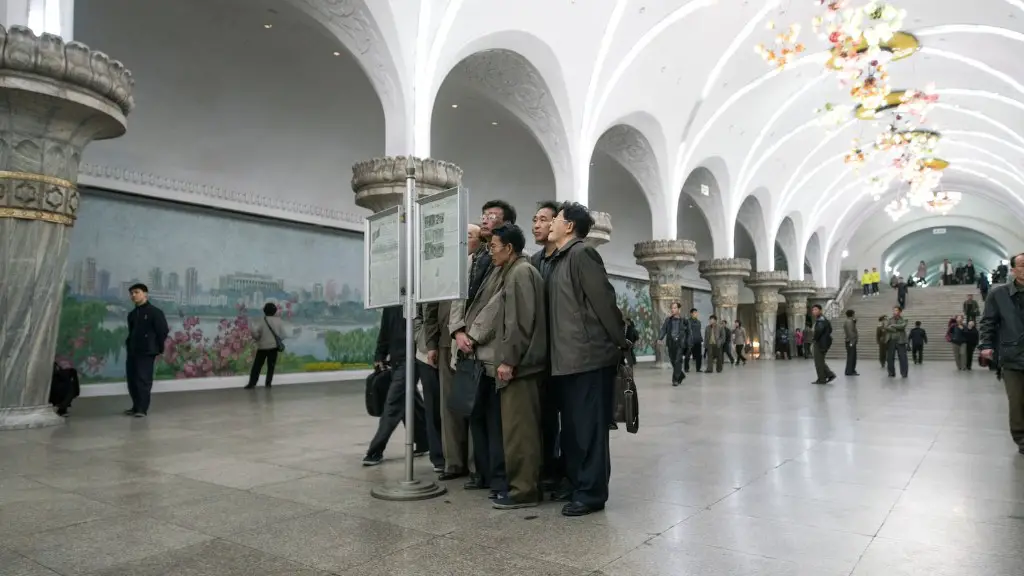For decades, North Korea has been creating tension between itself and the USA. This communist nation has no relations with the USA, and is regularly testing nuclear weapons in violation of international laws. North Korea is under decades of economic sanctions and its citizens have limited access to international trade and communication. So, what does North Korea want from the USA?
One of the primary goals of North Korea is to establish diplomatic relations with the USA. The DPRK’s leadership is keen to end the hostile relations and engage in dialogue with the USA. North Korea wants to normalize its relationships with the USA in hopes of reducing tensions between the two countries.
In addition, North Korea seeks financial aid from the USA. North Korea has suffered from international sanctions for many years, and its economy is still largely undeveloped. The DPRK is hoping that the USA could provide economic assistance, such as food aid and investment, that would help its citizens out of poverty.
North Korea also desires diplomatic recognition of its nuclear program. Over the years, North Korea has conducted numerous nuclear tests, including an underground nuclear test in 2017. The US has strongly criticized these activities, and has pushed for North Korea to abandon its nuclear program. The DPRK wants the USA to acknowledge and accept its nuclear weapons as a sign of respect for North Korea’s sovereignty.
Finally, North Korea wants access to US technology and expertise. North Korea is keen to tap into US know-how and technology to modernize its economy and better the lives of its citizens. However, due to the US sanctions regime, North Korea is largely cut off from much of the US technology and investments it desires.
North Korea’s Military Strategy
North Korea has also maintained a large standing military and has used it to intimidate its neighbors and the United States. It is estimated that Pyongyang has 1.2 million to 1.6 million active-duty personnel, including 600,000 to 800,000 reservists, according to the International Institute of Strategic Studies. North Korea is thought to have the fourth-largest military in the world, after the United States, China, and Russia.
North Korea’s military spending is extremely high, with estimates suggesting 25-30% of national GDP, according to the Armed Conflict Location & Event Data Project. In comparison, the US, China, and Russia spend only 3-4% of their national GDPs on military forces. North Korea maintains large numbers of artillery, armored vehicles, and rocket launchers, and is capable of launching missiles from both land and sea.
North Korea is also known for proudly displaying its military power through annual military parades in the capital city and routinely conducts large-scale military exercises. North Korea often threatens its neighbors, the United States and its allies with nuclear strikes. In 2018, North Korea also cancelled high-level meetings with South Korea, citing US-South Korea military drills.
North Korea’s military activities have been heavily condemned by the international community. The United Nations Security Council unanimously adopted several resolutions in response to North Korea’s continued testing of nuclear weapons. The United States has also imposed many sanctions on North Korea, due to its nuclear tests and missile launches.
What Could Change?
The situation between North Korea and the United States is highly volatile and unpredictable. Neither side appears willing to compromise on most issues and North Korea’s nuclear status remains a major stumbling block. It remains to be seen what will happen in the future, as North Korea’s leadership comes and goes, and tensions between the two countries rise and fall.
Recent signs suggest that both North Korea and the United States are seeking to thaw relations. In 2018, US President Donald Trump meet with North Korean leader Kim Jong-un, becoming the first-ever sitting US president to meet a North Korean leader. North Korea also suspended further nuclear and missile tests, and has stated that it is willing to move forward with denuclearization.
These shifts in policy could have a dramatic impact on the region. If North and South Korea can reach a peaceful solution, then it could lead to the reunification of the divided peninsula. This would be a major step forward for the region, and could lead to increased economic ties and a more positive relationship between North Korea and the United States.
Human Rights in North Korea
North Korea has a long and dismal record of human rights abuses. The United Nations Human Rights Council has consistently condemned North Korea’s record on human rights, and the US State Department’s Country Reports on Human Rights Practices for North Korea documents many abuses in the country.
The government of North Korea exercises strict control of its citizens, monitoring their activities and punishing anyone who does not comply. North Korea also has a harsh penal code, with punishments for minor crimes including forced labor, imprisonment, and even execution. North Koreans are also closely monitored for their loyalty to the regime and are subjected to frequent public displays of loyalty.
The inhabitants of North Korea have little access to the outside world. The government blocks many forms of media, including foreign news outlets and internet access. North Koreans are also barred from traveling outside of the country and face severe punishment if they are caught trying to escape. The lack of freedom of movement and information make it difficult for people to learn about the outside world and make connections with people in other countries.
North Korea has also been accused of committing multiple crimes against humanity. The United Nations Commission of Inquiry on Human Rights in the DPRK released a report in 2014 that detailed the atrocities committed by the North Korean government. These include torture, forced labor, and public executions, as well as starvation and forced abortion.
US Sanctions on North Korea
The United States imposed economic sanctions on North Korea in 2010 in an effort to pressure Pyongyang to end its nuclear weapons program. These sanctions restricted North Korean imports, exports and financial transactions, and blocked the country’s access to the international banking system. The US also designated North Korea as a “state sponsor of terrorism” and imposed additional travel and financial restrictions.
The US sanctions have had a major impact on North Korea’s economy. The sanctions have significantly limited North Korea’s access to international markets and trade, and the country’s citizens have suffered from increasing poverty and food insecurity. North Korea’s GDP has been steadily declining for over a decade, and the economy is estimated to have shrunk by 4.1% in 2019.
The US sanctions have also had an impact on US-North Korea relations. North Korea has accused the US of “economic terrorism” and has refused to engage in negotiations until the US lifts the sanctions. North Korea has also accused the US of using sanctions to “constrain its legitimate right to survive and develop” and has threatened to resume its nuclear weapons program if the sanctions are not lifted.
Ongoing Conflict
The conflict between the United States and North Korea is far from over. The US maintains a tough stance on North Korea and is unwilling to lift sanctions or provide any economic assistance until Pyongyang denuclearizes. North Korea, on the other hand, remains unwilling to abandon its nuclear weapons and is putting pressure on the US to end its “hostile policy”.
The two countries have also failed to reach any meaningful agreement. The two leaders met three times between 2018 and 2019, but the talks failed to result in any substantive progress. The talks were marked by widespread skepticism from US and North Korean officials, who accused each other of not being committed to negotiations.
The situation remains highly uncertain and it is unclear what the future holds for US-North Korean relations. It is up to the two sides to come to an agreement that is beneficial for both countries and the region as a whole. In the meantime, tensions between the US and North Korea will likely continue to simmer.





